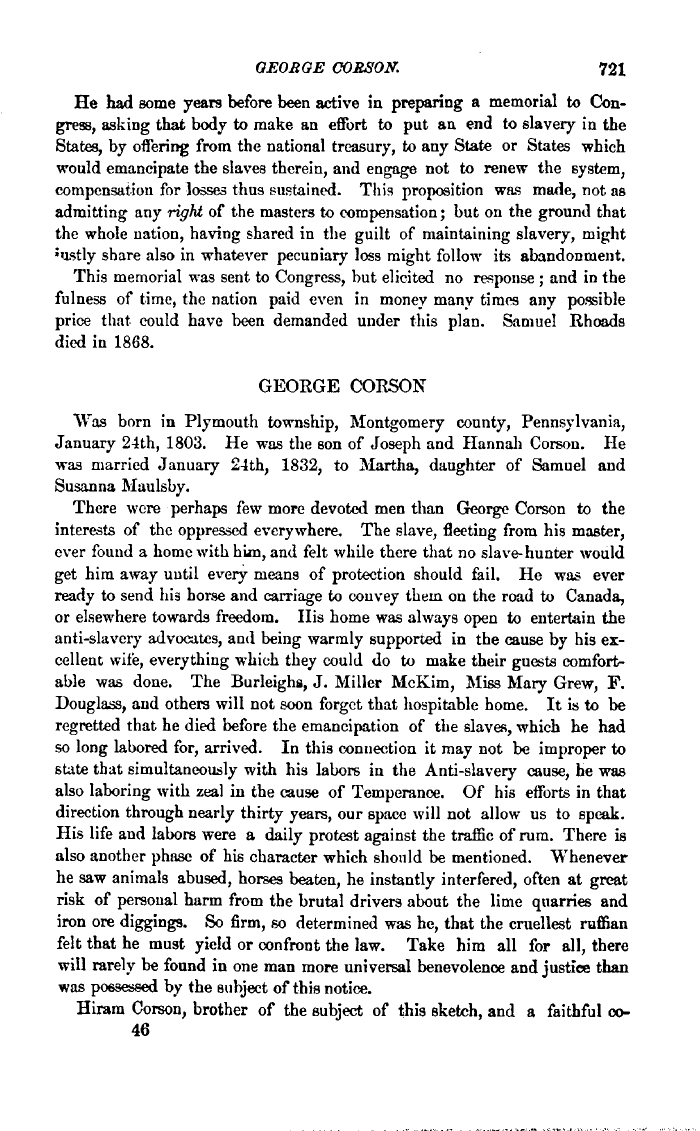 |
||||
 |
||||
| GEORGE CORSON. 721 He had some years before been active in preparing a memorial to Congress, asking that body to make an effort to put an end to slavery in the States, by offering from the national treasury, to any State or States which would emancipate the slaves therein, and engage not to renew the system, compensation for losses thus sustained. This proposition was made, not as admitting any right of the masters to compensation; but on the ground that the whole nation, having shared in the guilt of maintaining slavery, might •ustly share also in whatever pecuniary loss might follow its abandonment. This memorial was sent to Congress, but elicited no response ; and in the fulness of time, the nation paid even in money many times any possible price that could have been demanded under this plan. Samuel Rhoads died in 1868. GEORGE COKSON "Was born in Plymouth township, Montgomery county, Pennsylvania, January 24th, 1803. He was the son of Joseph and Hannah Corson. He •was married January 24th, 1832, to Martha, daughter of Samuel and Susanna Maulsby. There were perhaps few more devoted men than George Corson to the interests of the oppressed everywhere. The slave, fleeting from his master, ever found a home with him, and felt while there that no slave-hunter would get him away uutil every means of protection should fail. He was ever ready to send his horse and carriage to couvey them on the road to Canada, or elsewhere towards freedom. His home was always open to entertain the anti-slavery advocates, and being warmly supported in the cause by his excellent wife, everything which they could do to make their guests comfortable was done. The Burleighs, J. Miller McKim, Miss Mary Grew, F. Douglass, aud others will not soon forget that hospitable home. It is to be regretted that he died before the emancipation of the slaves, which he had so long labored for, arrived. In this connection it may not be improper to state that simultaneously with his labors in the Anti-slavery cause, he was also laboring with zeal in the cause of Temperance. Of his efforts in that direction through nearly thirty years, our space will not allow us to speak. His life and labors were a daily protest against the traffic of rum. There is also another phase of his character -which should be mentioned. Whenever he saw animals abused, horses beaten, he instantly interfered, often at great risk of personal harm from the brutal drivers about the lime quarries and iron ore diggings. So firm, so determined was he, that the cruellest ruffian felt that he must yield or confront the law. Take him all for all, there will rarely be found in one man more universal benevolence and justice than was possessed by the subject of this notice. Hiram Corson, brother of the subject of this sketch, and a faithful oo-46 |